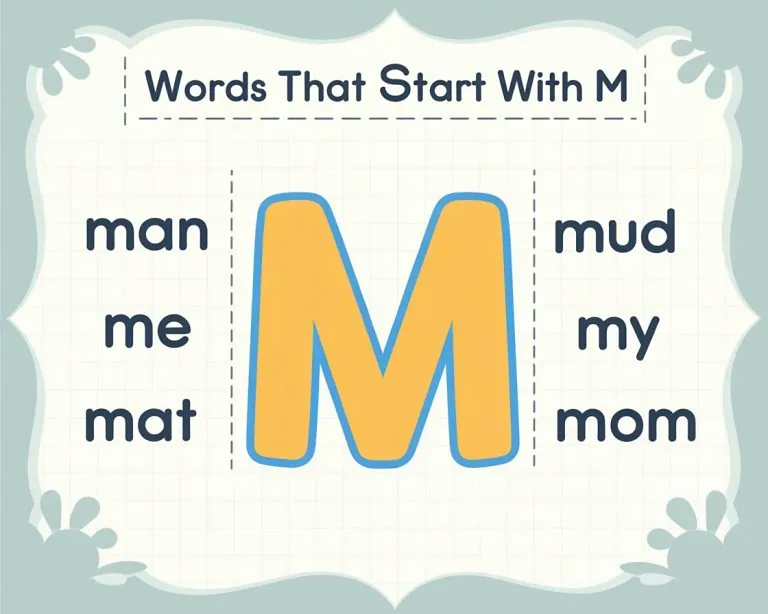Essay On Importance of Mother Tongue – 10 Lines, Short and Long Essay
Writing essays helps illuminate our thoughts and fosters a deep understanding of subjects. Especially when the topic is as personal and profound as one’s mother tongue. This essay on the mother tongue in English aims to stress its importance, not just for linguistic evolution, but for cultural identity. As per the Cambridge Dictionary, the mother tongue is the very first language you learn when you’re just a baby. It’s the language you pick up naturally from your family and surroundings long before you start learning any other language at school or as you grow up (1). It is more than just a medium of communication; it’s a bridge to our ancestry, memories, and childhood. As you delve into this essay for children and students, you will discover the deep connection we share with our mother tongue, how it shapes our thinking, emotions, and worldview
Key Points to Remember When Writing Essay on Mother Tongue
Writing an essay on such an important topic as the mother tongue demands an approach that combines research with emotional depth. The significance of our mother language cannot be overstated, making it vital to handle this subject with care. Here are some pivotal guidelines to ensure your mother language essay is both informative and impactful:
- Topic Understanding: Before starting, ensure you truly understand the depth and nuances of the mother tongue and its implications on culture, identity, and personal development.
- Personal Touch: Since this is a personal and deeply resonant topic, it’s beneficial to include anecdotes or experiences related to your mother tongue. It will make your essay relatable and heartfelt.
- Research Well: While personal experiences are vital, grounding your essay in facts and studies can add depth. For instance, research on the cognitive benefits of learning in one’s mother tongue can be a valuable addition.
- Cultural Significance: Emphasise the cultural and historical importance of mother tongues. Discuss how they play a role in preserving traditions, folklore, and shared community memories.
- Global Context: Highlight the position of mother tongues in a globalised world. Discuss the challenges and importance of preserving them in the face of global languages.
- Language Structure: Ensure your essay has a clear structure – an introduction, main body, and conclusion. Each section should flow logically to the next, creating a coherent narrative.
- Originality: While it’s okay to seek inspiration from other sources, make sure your essay is original. Avoid plagiarism and aim for authenticity in your words and ideas.
- Proofread: Once you’ve penned down your thoughts, take the time to review your essay. Check for grammatical errors, ensure smooth transitions between points, and verify that the content aligns with the topic.
- Engaging Conclusion: Conclude your mother language essay in a way that leaves a lasting impression on readers, emphasising the timeless importance and personal connection we all share with our native languages.
10 Lines on Mother Tongue
The mother tongue, our first language, forms the cornerstone of our cultural and personal identities. This language resonates with our earliest memories, emotions, and experiences. Here’s a short essay for lower primary classes that encapsulates the essence of the mother tongue in 10 easy-to-understand lines:
- Mother tongue is the first language we learn from our parents.
- It holds our family’s stories, songs, and secrets.
- Every culture has its unique mother tongue that shapes its identity.
- Our mother tongue helps us express our truest feelings easily.
- Learning in our mother tongue makes understanding simpler and fun.
- It connects us to our grandparents and ancient traditions.
- Through it, we can understand our culture’s folktales and songs.
- Every mother tongue is special and deserves to be cherished.
- By speaking in our mother tongue, we celebrate our heritage.
- Our mother tongue is like a comforting lullaby, always close to our hearts.
Paragraph on Mother Tongue in English
The mother tongue, a gift bestowed upon us from birth, is the vessel of our earliest memories, emotions, and cultural expressions. Its importance transcends mere communication, embedding itself into the very fabric of our identity. The following paragraph delves into the essence of the mother tongue when expressed in English:
While globally dominant, the English language often finds itself intertwined with a myriad of mother tongues, each enriching it with unique nuances. Our mother tongue, intrinsically linked to our heritage and identity, carries tales of our ancestors and the melodies of lullabies sung to us as children. This language, deeply rooted in emotions and memories, forms an irreplaceable part of our psyche. Even as we navigate the vast expanse of global languages, our mother tongue remains our anchor, providing solace, authenticity, and an unmistakable sense of home. Recognising the profound significance of our mother tongue helps us appreciate the cultural tapestries that shape our world and our place within it.
Short Essay on the Importance of Mother Tongue
The mother tongue, often considered the language of the soul, encapsulates the essence of one’s culture, heritage, and personal experiences. It acts as a compass that guides our emotional and cognitive landscapes. Here’s a short essay exploring the profound significance of the mother tongue:
Our mother tongue, the very first language that dances on our lips, is intrinsically tied to our identity. It’s not merely a medium of communication but a blanket of memories, emotions, and cultural traditions. Every lullaby sung, every story narrated, and every emotion expressed finds its purest form in our mother tongue. Children, when introduced to concepts in their native language, exhibit enhanced comprehension and a deeper emotional connection. Additionally, our mother tongue keeps our traditions and cultural heritage alive, preserving age-old traditions, stories, and values. Even though we learn different languages because of how connected the world is now, it’s still really important to love and keep our mother language strong. For in its melodies and rhythms, we find the echoes of our past and the aspirations of our future. It’s like our anchor, keeping us connected to where we come from, even if we go exploring other languages.
Long Essay on Mother Tongue
The mother tongue, our primary language, forms an intrinsic part of our identity. It ties us to our cultural heritage, shapes our cognitive processes, and influences our emotional responses. Understanding its significance, especially in the realms of education and national development, is imperative. In this essay, we’ll delve deeper into the essence of the mother tongue and explore ways to promote its preservation and growth.
Importance of Mother Tongue
Our mother tongue is much more than just a language; it is a representation of our history, culture, and collective memory. It serves as a bridge linking us to our ancestors, the values they upheld, and the tales they told. This deep-seated connection impacts our lives, especially in education and national development.
Significance in National Development
A nation’s strength isn’t solely determined by its economy or military prowess, but also by the preservation and promotion of its cultural heritage. The mother tongue plays a pivotal role here. It fosters unity, instils a sense of belonging, and reinforces shared values. By promoting and preserving our mother tongue, we ensure that our national identity remains intact, even in the face of rapid globalisation.
Importance in Education
Mother tongue education means teaching kids using the language they speak at home. It helps them learn better because they already understand that language well (2). Educating children in their mother tongue has myriad benefits, including (3):
- Enhances Learning: Concepts are grasped faster when taught in a child’s native language.
- Builds Emotional Connection: Students relate better to content when it’s in their mother tongue, fostering a deeper emotional understanding.
- Boosts Confidence: Children are more expressive and confident when communicating in their primary language.
- Preserves Culture: UNICEF also agrees that teaching in the mother tongue ensures that traditional values and stories are passed down to younger generations as it preserves and promotes the cultural identity of a community (4).
- Promotes Holistic Development: A balance of mother tongue and global languages ensures a well-rounded education.
Ways to Promote Mother Tongue
- Celebration of Language Days: Hosting annual events celebrating various mother tongues can instil pride and promote usage.
- Incorporate in School Curriculum: By including mother tongue literature and stories in school curriculums, we ensure it remains a vital part of a child’s education.
- Encourage Media Representation: Local television shows, radio programs, and films can help in the widespread dissemination of the language.
- Literature Festivals: Hosting events that focus on literature in one’s mother tongue can amplify its reach and appreciation.
- Language Classes: Organising community-based classes to teach and preserve the language ensures that younger generations stay connected to their roots.
What Will Your Child Learn From Mother Tongue Essay?
In the Mother Tongue essay, your child will learn how special their first language is and why it’s more than just a way to talk. This essay explains how language connects to culture, who we are, and how we think and feel. It shows how speaking our mother tongue helps us understand the world better and feel closer to others. Moreover, by appreciating the importance of mother tongues in education and national development, your child will gain a holistic perspective on its relevance in the global context.
FAQs
1. Can a child have more than one mother tongue?
Absolutely! A child can indeed have more than one mother tongue, especially if they are raised in a bilingual or multilingual environment. When children are exposed to more than one language from birth or at a very young age and use them frequently in various spheres of life (e.g., one language with one parent and another with the second parent), they can develop native proficiency in both, effectively having multiple mother tongues.
2. What is the difference between mother tongue and first language?
The terms ‘mother tongue’ and ‘first language’ are often used interchangeably. However, there’s a subtle distinction:
- Mother Tongue: This typically refers to the language spoken at home, especially by one’s parents or caregivers. It’s deeply connected to one’s cultural and familial roots.
- First Language: This is the language that a person learns first and in which they are most fluent or comfortable. In many cases, a person’s mother tongue and first language are the same, especially if they continue to use that language predominantly. However, due to circumstances such as migration or a change in the primary language of education, a person’s first language might shift from their mother tongue.
Both terms emphasise the foundational role of language in one’s life, but the specific focus of each can vary based on context and individual experiences.
3. What is the importance of writing an essay on the mother tongue?
The importance of mother tongue essay is not hidden. Since the mother tongue helps shape an individual’s identity and cultural connection, an essay on the mother tongue will help a child with a medium to establish its importance in daily life and make a foundation for future generations.
The mother tongue, intricately woven into our identity, remains a testament to our cultural heritage, familial bonds, and individual narratives. Its significance extends beyond simple communication, touching upon the core of our emotions, memories, and expressions. Through essays and discussions, we not only underscore its importance but also educate and empower the younger generation to cherish and uphold this linguistic treasure. Recognising, celebrating, and promoting our mother tongue ensures the preservation of our rich tapestry of traditions, stories, and values for generations to come.
References/Resources:
1. Mother tongue; Cambridge Dictionary; https://dictionary.cambridge.org/dictionary/english/mother-tongue
2. Learn more about Mother Tongue & Multilingual Education; Rutu Foundation; https://www.rutufoundation.org/what-is-mother-tongue-education/
3. Multilingual education – a pillar of learning and intergenerational learning; United Nations; https://www.un.org/en/observances/mother-language-day
4. Learning in the mother tongue is the best start to education; UNICEF; https://www.unicef.org/india/stories/learning-mother-tongue-best-start-education
Also Read:
Essay on Homework for Children
Essay on Health and Hygiene for Kids
Sports Day Essay for Students and Children
Short and Long Essay on Importance of Family
Was This Article Helpful?
Parenting is a huge responsibility, for you as a caregiver, but also for us as a parenting content platform. We understand that and take our responsibility of creating credible content seriously. FirstCry Parenting articles are written and published only after extensive research using factually sound references to deliver quality content that is accurate, validated by experts, and completely reliable. To understand how we go about creating content that is credible, read our editorial policy here.













.svg)
















